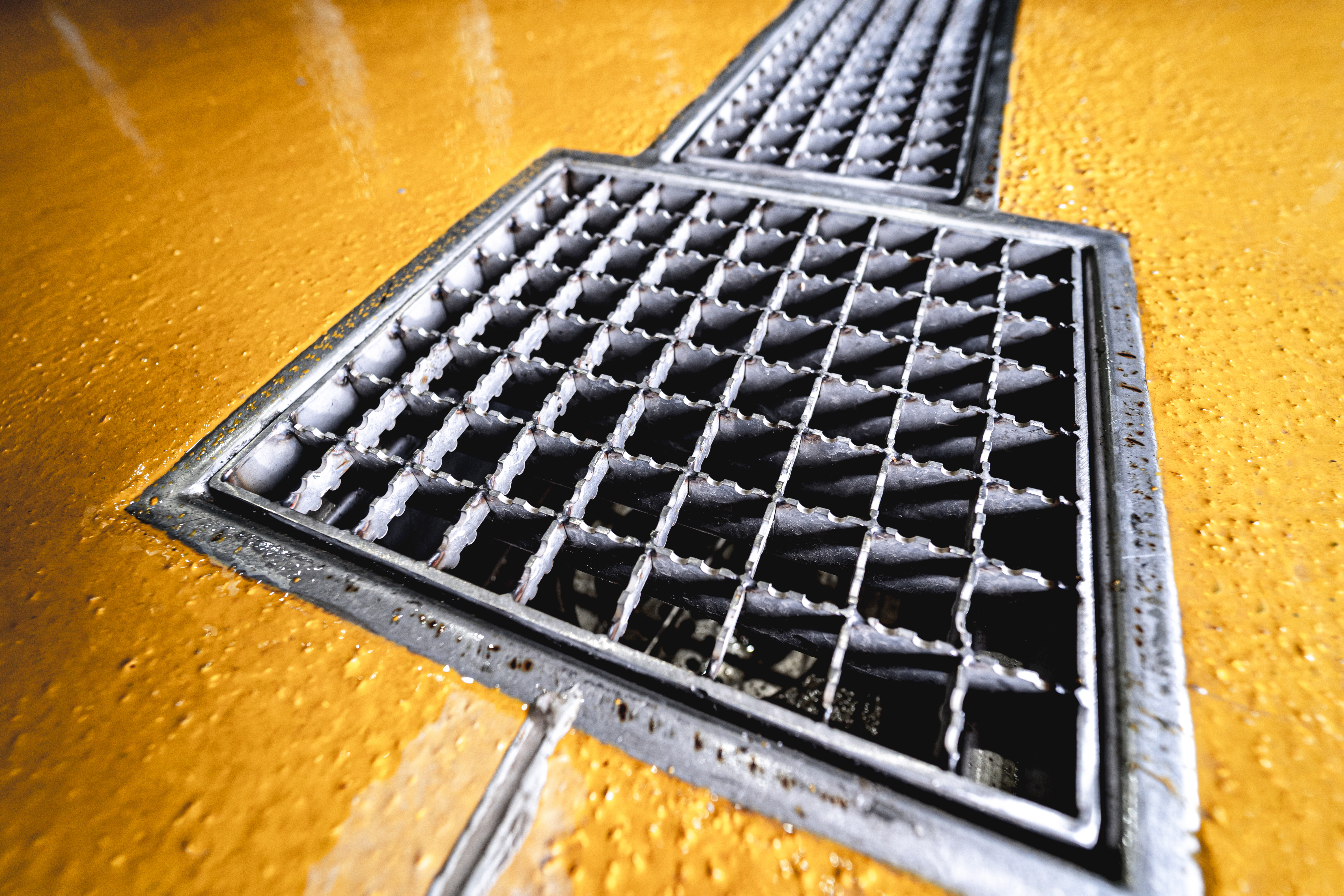by
Lawton Brothers
| Dec 29, 2021

In many buildings, floor drains go relatively unnoticed. Seen in restrooms, garages, warehouses, and commercial kitchens, you’d be hard pressed to find a commercial building without a floor drain. As a vital feature of sanitation that’s often overlooked, these drains catch overflow water (and other debris) and direct it to the sewer or municipal storm drain. While these nifty pieces of engineering are typically ignored underfoot, there are a few key tasks that should be performed as regular maintenance.
Test Your Drain
Oftentimes, some soapy water can highlight, or even fix, problems with your floor drain. If the floors near a drain are not mopped regularly, they run the risk of clogging or drying out. Using a few gallons of soapy water, pour this down your floor drain to determine if there is a clog forming. If the water is draining slowly, it may be time for a cleanout.
Dried Up Floor Drains
As mentioned above, commercial drains run the risk of ‘drying out’. Floor drains act as part of your sewer system; they aid in helping overflow and, just like a bathroom sink, have a U-shaped P-trap pipe designed to hold water. This curve full of water is what prevents gasses from the sewer from coming up through the drain. Any foul smells will likely indicate that the water trap has dried up, allowing these odors to escape. This can be avoided with regular mopping or by refilling the drain trap with some water.
Clogged Drains
Floor drains can become clogged when debris is swept into them. Whether by foot traffic or by broom, dirt and debris can head for the drain and cause unnecessary buildup and even blockages. Since these drains are on the floor where large amounts of debris collect, it may feel simple or easy to continue to sweep dirt from the surrounding areas into the drain. This, however, will lead to a clogged drain in need of snaking.
Regular Drain Cleaning
Prevention is the number one way to protect against costly damage and long-term problems. Once a month, inspect and clean all of your drains. Check for debris and clear anything you find – this may mean you need to remove a lid. Consider cleaning the lid and other exposed pieces to limit the growth of bacteria and, when necessary, use a safe, liquid drain cleaner to help flush debris through the pipes.
Don’t Send Your Money Down the Drain
Aren’t sure of the product you’re buying or have questions about the cleaning process? Give us a call! Lawton Brothers is happy to answer your questions for free. With our courteous and professionally certified staff, there’s always a friendly voice, happy to help. Give us a call today with your questions, or ask about a free cleaning audit: 800.432.0813.